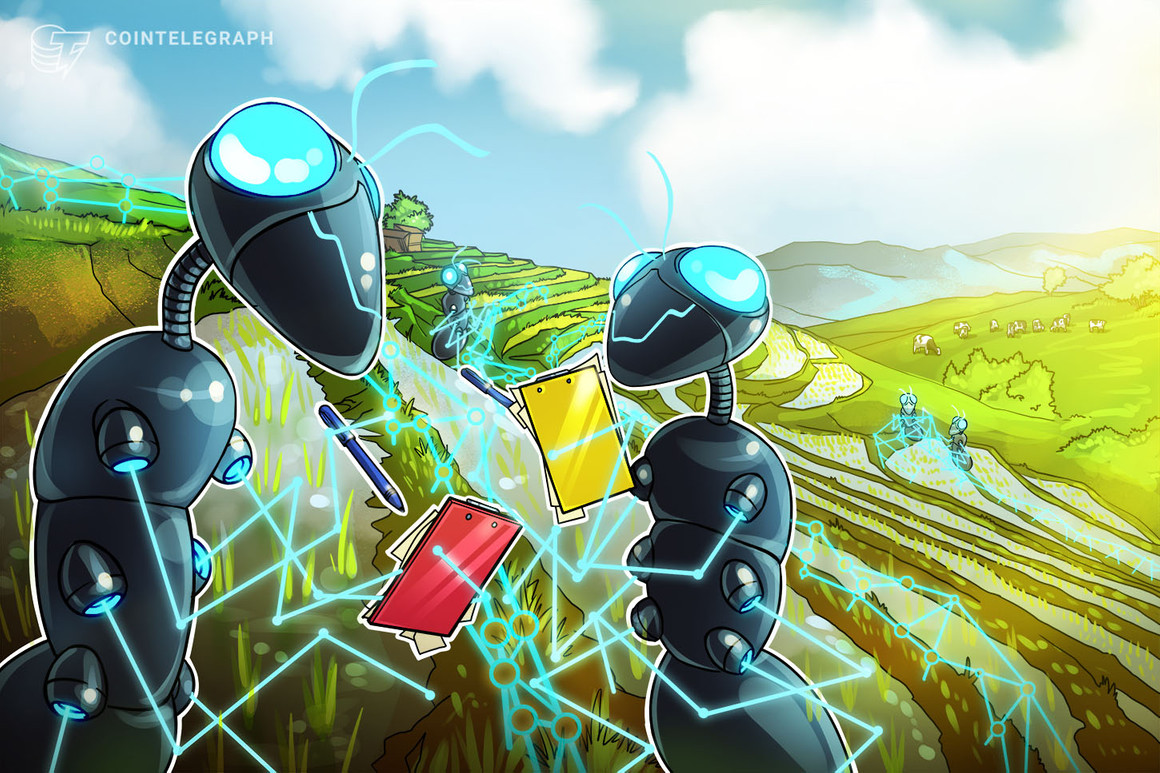Small farmers in the developing world may be on the cusp of an agricultural breakthrough. With emerging technologies like satellite imagery, drones an
Small farmers in the developing world may be on the cusp of an agricultural breakthrough. With emerging technologies like satellite imagery, drones and machine learning boosting productivity, it’s becoming more viable than ever to sell their produce in places like Western Europe.
There’s just one catch: avocado farmers in East Africa or coffee growers in Latin America have to be able to document that their crops have been grown in accordance with sustainable agricultural practices.
Their harvest bounty can’t come at the expense of denuded forests or through the assistance of child labor. And if their products are labeled “organic,” they will have to provide certification that no synthetic fertilizers and pesticides were used.
This is where blockchain technology could play a significant role.
Generating an immutable record
“Blockchain creates a great solution with an immutable record, particularly [when] combined with mobile” and other emerging technologies, Jon Trask, CEO of Dimitra — an AgTech firm active in 18 countries, which has worked with government agencies in Brazil, India, Uganda and Nepal — told Cointelegraph.
On July 20, Dimitra and One Million Avocados (OMA) — a sustainability-focused tech group — announced a partnership to help Kenyan avocado farmers boost production and quality through cutting-edge emerging technologies, including blockchain.

Dimitra’s multitech platform, which also includes mobile technology, artificial intelligence (AI), Internet of Things devices, satellite imaging and genomics, will give small farmers “greater access to solutions to further promote sustainable farming practices, primarily in pest and disease prevention and data reporting,” according to the press release.
Another key goal of the partnership is to help farmers in East Africa “overcome traceability issues to ensure maximum value of produce and to align with international regulatory frameworks.”
It’s not just in Kenya or the African continent where this movement of agricultural goods from the Global South to the Global North is picking up, either. “We have the same situation in Indonesia, Brazil and a few other Latin American countries,” Trask told Cointelegraph. “When they [farmers] are exporting their produce, they can get more dollars per kilo.”
Documentation will be critical for would-be exporters, especially with Europe’s new deforestation regulation, which went into force in June — though its main obligations won’t apply until yearend 2024. “You will have to prove that your firm has not been involved in deforestation,” explained Trask, adding:
“When an avocado farmer in Kenya goes to export their produce, they need to create certain documentation to show the origin of the produce. There is security associated with that document. It’s easy to create a fraudulent document.”
Enter blockchain, the traceability tool par excellence. “Blockchain-traced data is immutable and can serve as proof for farmers to get certifications or loans,” researcher SzuTung Chen, who recently completed a master’s thesis on coffee growing in Colombia, told Cointelegraph. “A blockchain company is working with carbon credit companies, for example, so that the farmers that are operating sustainable practices can have recorded data of their farming and get additional income.”
One of the biggest problems facing small farmers is information asymmetry, Chen explained. “Coffee brands and roasters capture the highest margin of the coffee price because they are closer to the end customers, and can leverage branding and marketing.”
Farmers, on the other hand, don’t know where their coffee goes after they sell it, the destination of their coffee or any coffee market trends — “which keeps them in a vulnerable situation in the supply chain,” she adds.
What blockchain can potentially do, she continued, is facilitate two-way transparency, so not only do stakeholders at the end of the supply chain know where the coffee comes from, but farmers also know what happens in the downstream supply chain.
More powerful than blockchain alone
Dimitra will use satellite imaging technology to help Kenyan farmers prove they aren’t ravaging woodlands to grow their avocados, but this technology can also be used to enhance productivity. By applying machine learning models to satellite imagery, Dimitra has developed algorithms that can pinpoint where more fertilizer is required or where irrigation needs to be stepped up, for example.
A multitech solution may generate synergies too. As Monica Singer, South African lead and senior strategy at ConsenSys, told Cointelegraph:
“When you are able to create an ecosystem using mobile and Internet of Things devices and AI, where relevant, it will be a more powerful solution than the blockchain ledger on its own.”
Is this cross-disciplinary approach the wave of the future?…
cointelegraph.com
